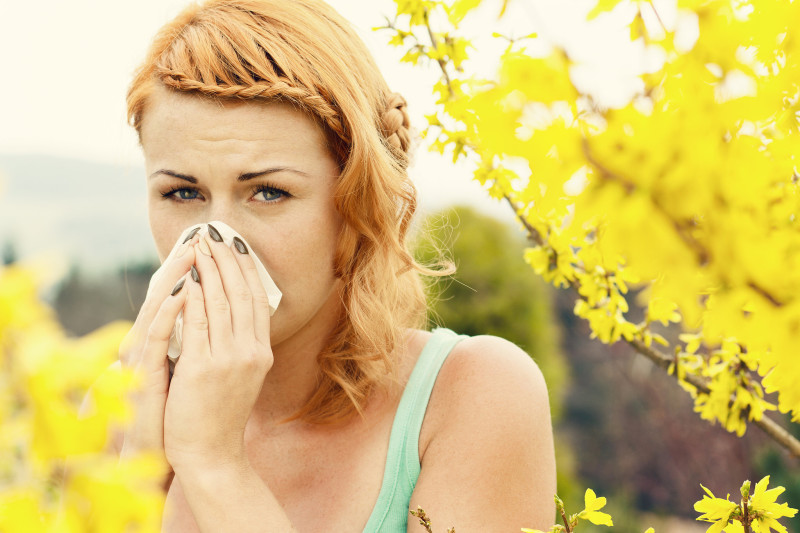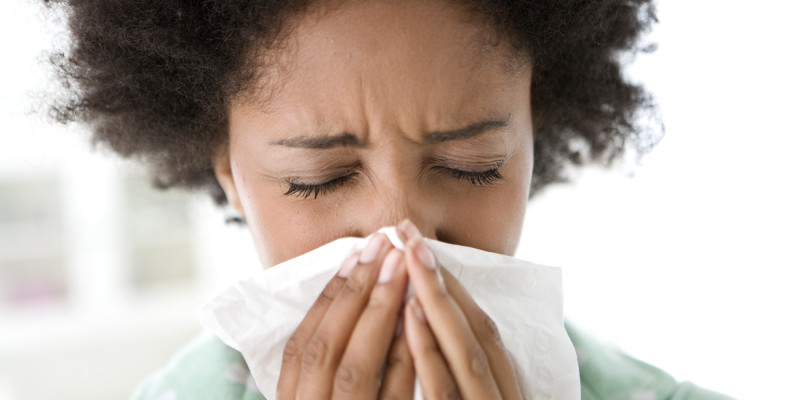So you’re sneezing, coughing and you have a runny nose. Are you sick or do you have allergies? The differentiation can be frustrating, even for doctors.
Many symptoms of a cold can also be present in allergies. Overlapping symptoms may include congestion, sneezing, coughing, runny nose, and a frontal headache. Even fatigue, more common when fighting a cold, can come from allergies, especially if all that nose blowing and coughing is ruining your sleep.
All of these symptoms are nonspecific because they can result from your body’s immune system fighting an infection OR your body releasing histamine in response to an allergen—dust, pollen, certain foods.
Here are some important questions to ask:
- Are you achy? Likely a cold caused by a virus
- Have a fever? Cold!
- Itchy, watery eyes? Usually allergies, although you can develop pink eye from an upper respiratory infection. Under the eye swelling points to allergies.
- How long are your symptoms lasting? A cold rarely lasts longer than 2 weeks,; allergies can go on for much longer.
- What’s the time of onset? If symptoms came on gradually, it’s more likely a cold (2-3 days after virus exposure); if they come on fast it’s more likely allergies.
Sometimes the answer doesn’t come as easily as we’d like and it’s left up to trial and error–taking a mental note of what’s helping you and what makes your symptoms worse is a great idea.
If you know the cause, you can take aim with an appropriate treatment. If you indeed have a cold, the most important steps are to take are get REST and drink fluids .
Taking contact precautions like proper hand washing helps to prevent the spread of a cold, while over the counter decongestants and an anti-inflammatory for pain can help you get through the day.
If allergies are plaguing you, it’s all about blocking histamine! Daytime pills are now available over the counter that are non-drowsy (Allegra doesn’t cross blood-brain barrier), and you may be able to take Benadryl (diphenhydramine) at night to help sleep while decongesting. Diet has a major influence on our histamine response; avoiding certain foods can greatly alleviate allergic symptoms.
Eliminating your exposure to the allergen is ideal, but this is not always easy when you want to be outside on that gorgeous sunny day or have a friend over who lives with a dog. You may need to see an allergist to come up with a plan that works for you!
 English
English French
French German
German





